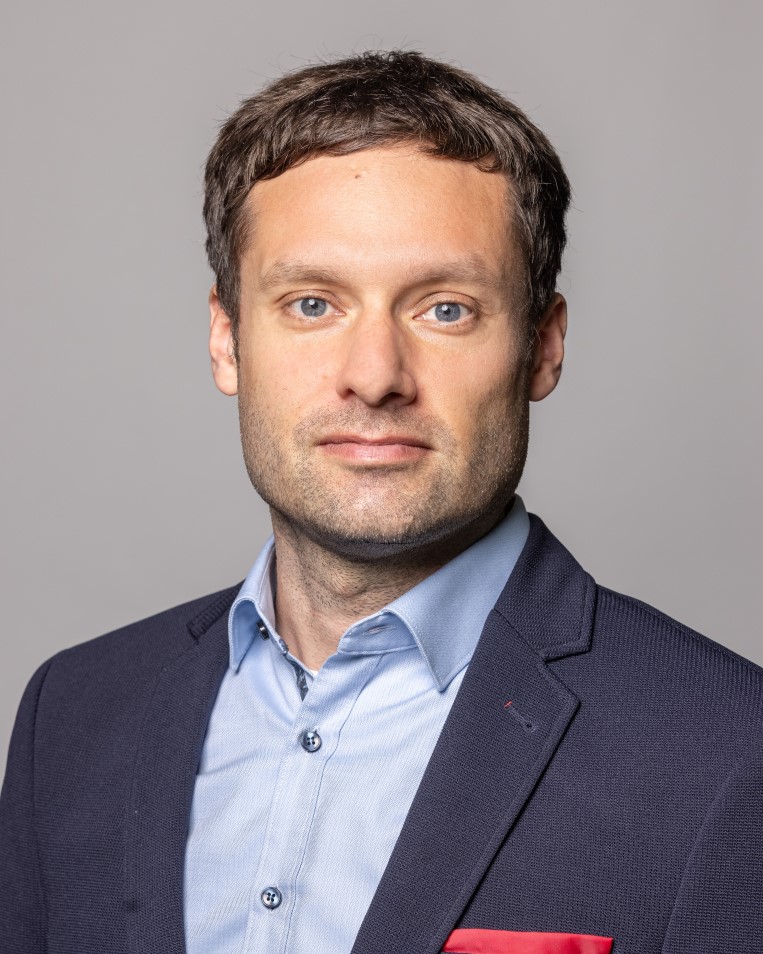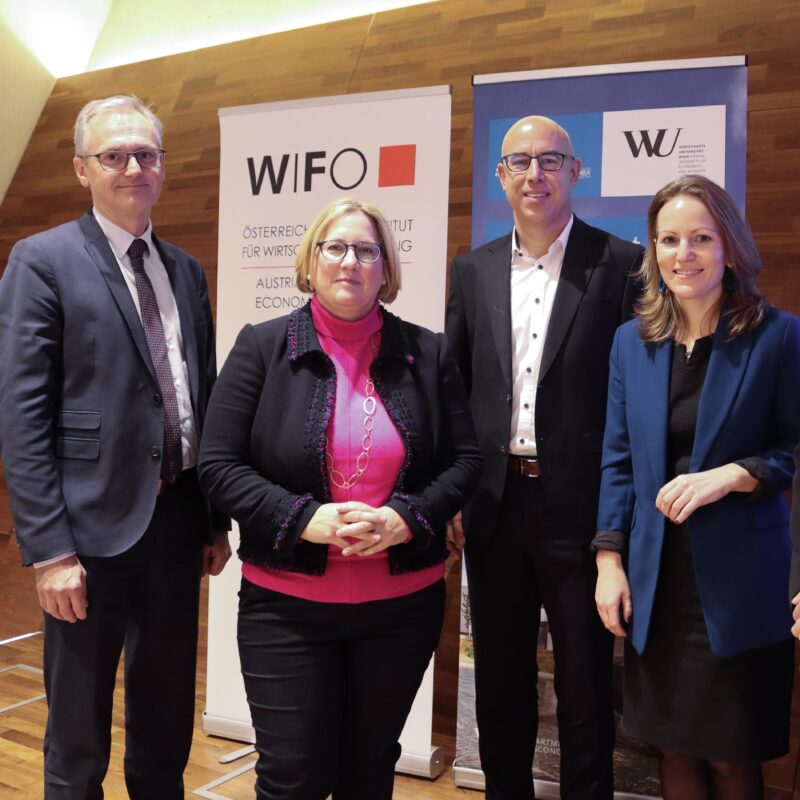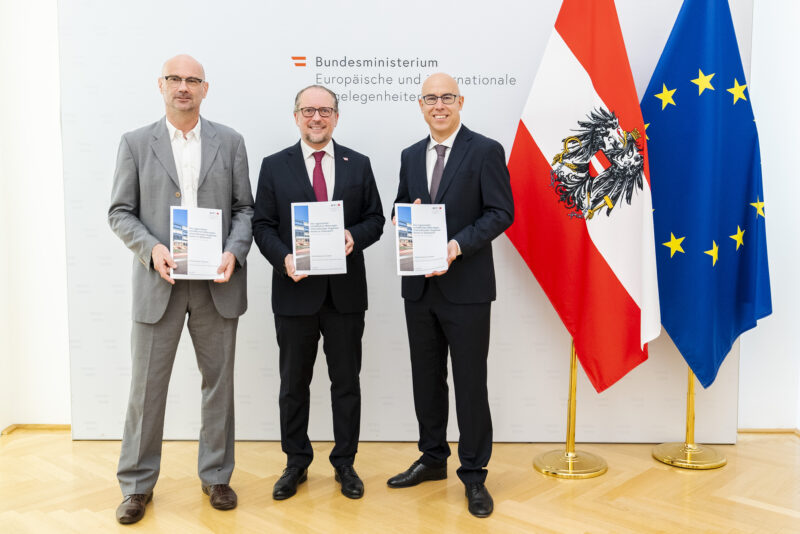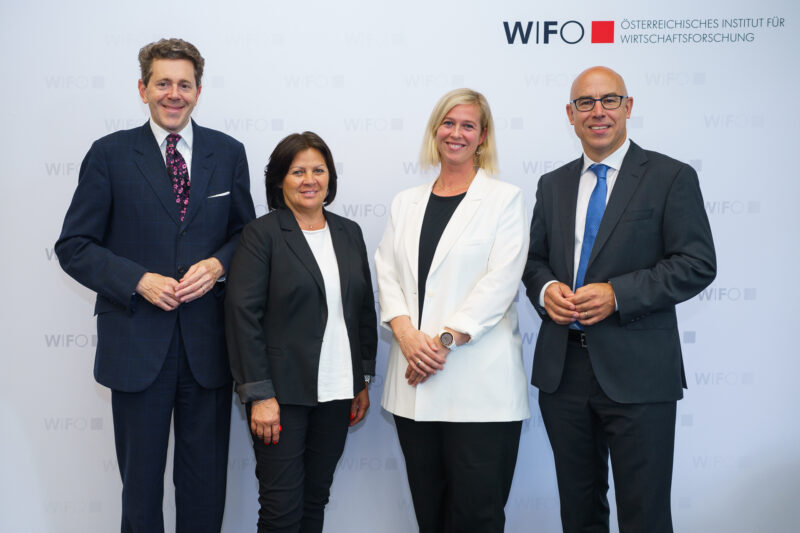
Competitiveness
By competitiveness, WIFO means the ability of an economic system to generate permanently high real incomes and to improve social and environmental living conditions under constantly changing and reshaping framework conditions. Empirical findings on the strengths and weaknesses of regions and locations are important indicators for the success of economic policy and at the same time point to the need for reform.
There are both synergies and conflicting goals between the different dimensions of competitiveness. To ensure that long-term goals are not neglected in favour of short-term aspects, competitiveness requires the consideration of different time horizons:
- In the short term, the focus is on adaptability to changing framework conditions. Imbalances should be avoided and macroeconomic stability maintained. Typical indicators are, for example, the real effective exchange rate, unit labour costs, inflation or the current account balance. The most important macroeconomic control factors include monetary, fiscal and wage policy.
- In the medium term, it is about the dynamics of the economic system, expressed both in productivity growth and in the goals of full employment, high market shares in exports or improving energy and resource efficiency. The most important determinants include innovation and investment, internationalisation as well as competition and regulation.
- In the long term, the focus is on quality of life. Priority goals are sustainably high real incomes, inclusion and social participation as well as the improvement of the natural environment, with a particular focus on competition-relevant aspects (e.g., resource efficiency or the social system as a productive factor).
A particular challenge is to advance the implementation of these goals simultaneously.
Recent publications
WIFO Working Papers
07.04.2025
Finalization: April 2025
Specialist publication: WIFO Working Papers
WIFO Reports on Austria
28.02.2025
Finalization: January 2025
Specialist publication: WIFO Reports on Austria
JEL-Codes: E22, E23, E24, O52
Study
21.02.2025
Austrian Foreign Trade
Finalization: February 2025
Project partner Austrian Institute of Economic Research, The Vienna Institute for International Economic Studies, Economic and Social Science Computing Center, Johannes Kepler University of Linz, University of Vienna, Vienna University of Economics and Business, University of Innsbruck
Contractor project: Federal Ministry for Digital and Economic Affairs
Publication series: FIW – Forschungsschwerpunkt Internationale Wirtschaft
WIFO-Monatsberichte
06.02.2025
Finalization: February 2025
Specialist publication: WIFO-Monatsberichte
JEL-Codes: E22, E23, E24, O52
Recent projects
Project
Ongoing project since: 20.01.2025
Contractor project: The Vienna City Administration
Project
Ongoing project since: 20.11.2024
Contractor project: World Economic Forum
Project
Ongoing project since: 31.10.2024
Contractor project: Rat für Forschung, Wissenschaft, Innovation und Technologieentwicklung
Project
Ongoing project since: 29.10.2024
Contractor project: Federal Chancellery, Federal Ministry of Finance, Federal Ministry of Labour and Economy, Federal Ministry of Education, Science and Research, Federal Ministry of Climate Action, Environment, Energy, Mobility, Innovation and Technology
Recent events
20.02.2025-
21.02.2025
21.02.2025










